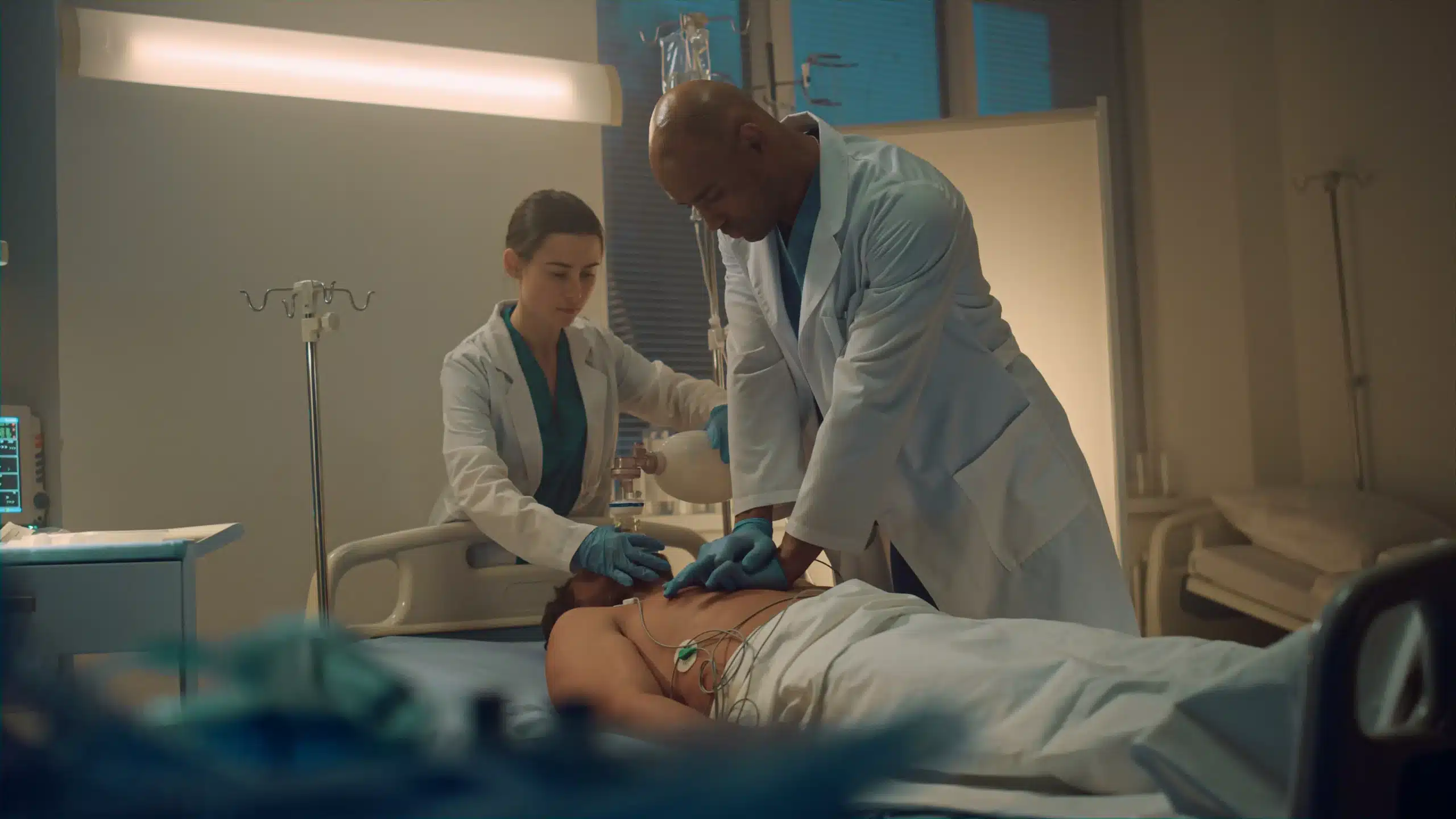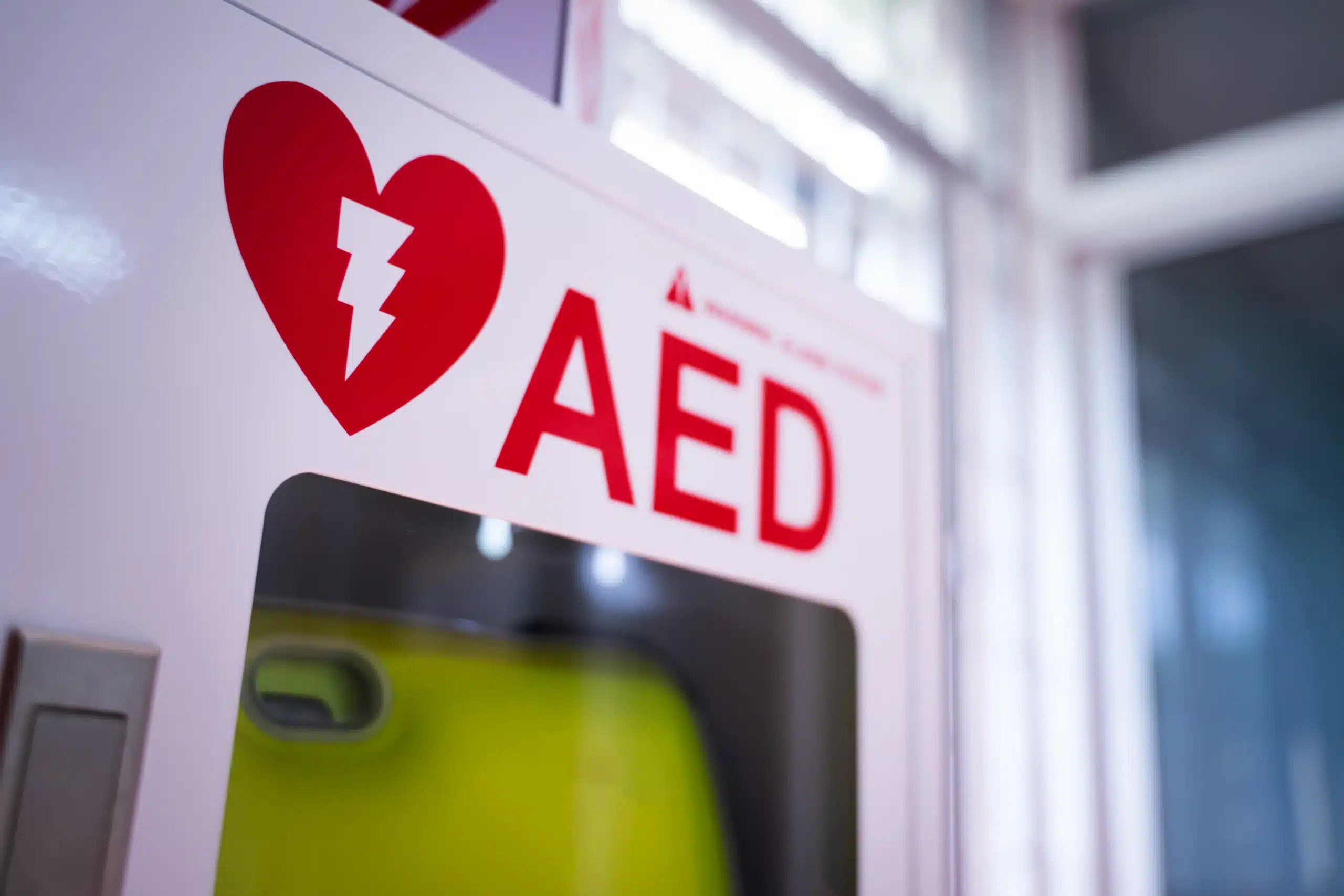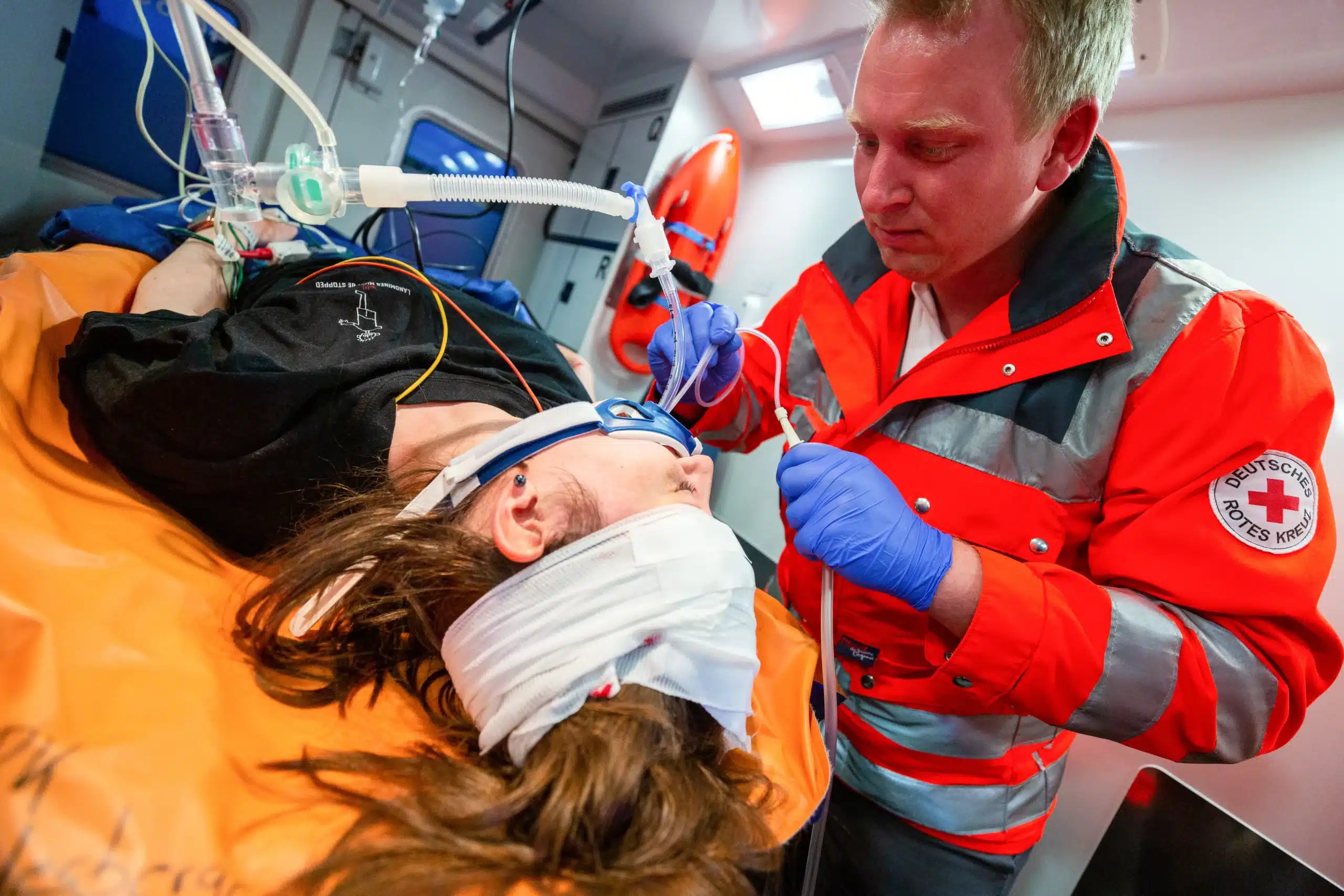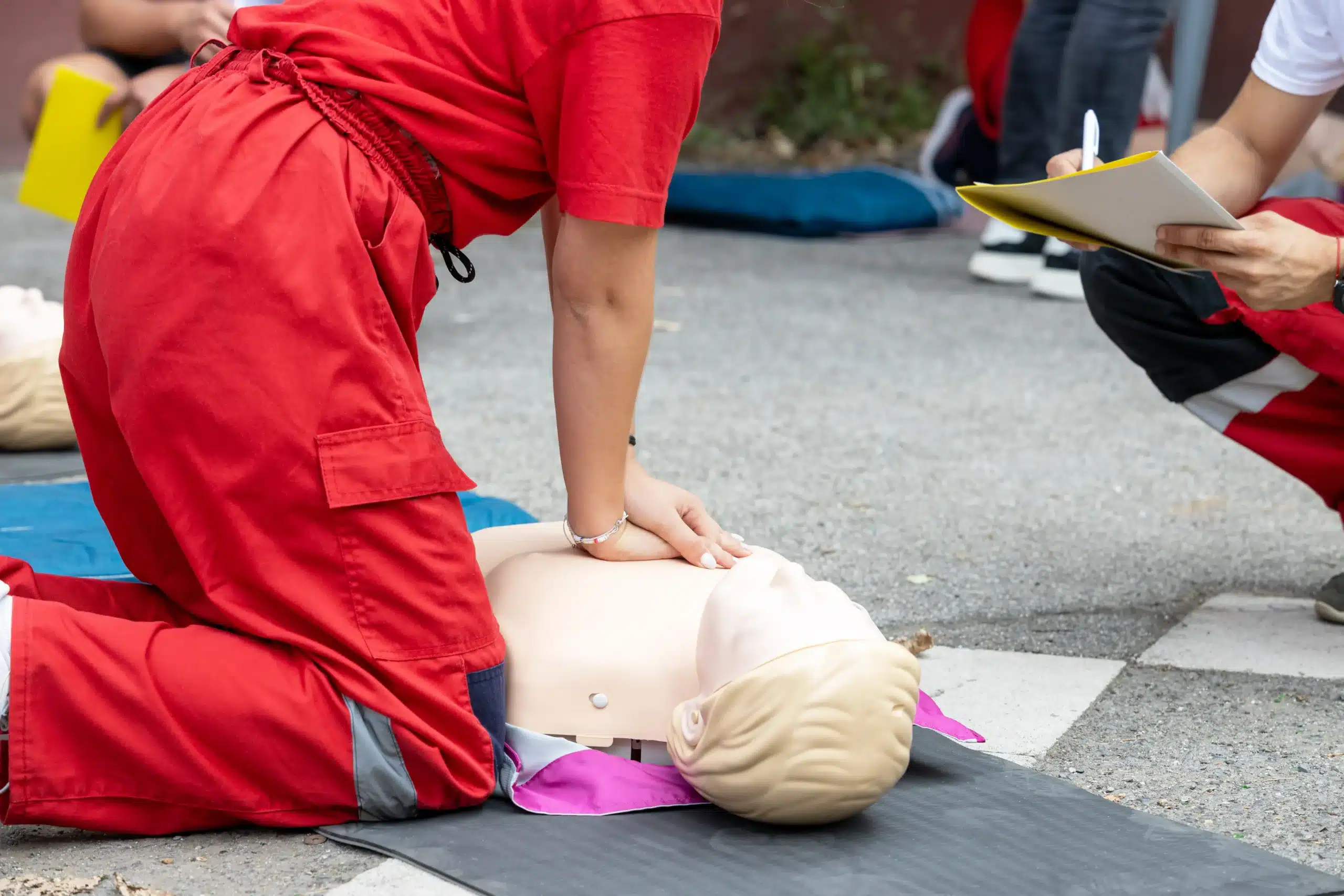The first few moments of a newborn’s life are precious and often unpredictable. As a healthcare professional, you play a vital role in ensuring those moments are as safe and healthy as possible. AHA NRP Certification empowers you to handle any emergency with confidence and skill. It’s a comprehensive program that goes beyond textbooks, providing hands-on training and simulations to prepare you for real-world scenarios. This article will explore the ins and outs of AHA NRP Certification, including who needs it, what the training involves, and how it can benefit your career.
Key Takeaways
- NRP certification is essential for newborn care: This training provides healthcare professionals with the skills to manage emergencies, adhering to the latest AAP and AHA guidelines. The program emphasizes teamwork and continuous quality improvement.
- Certification requires blended learning: Combine online learning with in-person skills sessions and simulations to gain practical experience and master essential techniques. In-person training is mandatory.
- Maintain your certification: Stay up-to-date with current guidelines, renew your certification every two years, and pursue continuing education to refine your skills. Safety Training Seminars offers affordable courses and support.
What is AHA NRP Certification?
The Neonatal Resuscitation Program (NRP) certification equips healthcare professionals with the skills to respond to newborn emergencies. This training is crucial for neonatal care teams, providing the knowledge and practical experience to resuscitate newborns and provide effective care during critical moments. NRP certification is the established standard for neonatal care in the U.S.
Purpose and Significance in Neonatal Care
The NRP program focuses on immediate interventions after birth, emphasizing a team-based approach to ensure everyone in the delivery room is prepared and coordinated. This training is essential for stabilizing newborns and addressing any unexpected complications, with the ultimate goal of improving outcomes and giving newborns the best possible start.
Key Components
The NRP course adheres to the guidelines set by the American Academy of Pediatrics (AAP) and the American Heart Association (AHA) for neonatal resuscitation. This ensures healthcare providers receive training aligned with current best practices in neonatology. The program covers a range of topics, from basic life support to advanced procedures, and emphasizes the importance of ongoing quality improvement in neonatal care. Ultimately, NRP certification instills a commitment to providing the highest quality care for newborns. You can learn more about what to expect from an NRP Certification course.
Blended Learning
NRP certification utilizes a blended learning approach, combining online modules with in-person skills sessions. This flexible format allows healthcare professionals to learn at their own pace and then demonstrate their skills in a simulated environment. The program is internationally recognized and used in over 130 countries, reflecting its widespread adoption and effectiveness. RQI Partners offers more information on the NRP program and its global reach. They also provide resources for current providers and instructors.
Common Misconceptions
One common misconception about NRP certification is that it can be obtained entirely online. While online learning is a component, in-person training and skills assessment are required. This hands-on component allows participants to practice essential techniques and demonstrate proficiency in a realistic setting. NRP certification verifies that healthcare providers have completed the training and possess the practical skills to effectively resuscitate newborns. For more information about NRP Certification, check out this helpful guide.
Who Needs AHA NRP Certification?
The Neonatal Resuscitation Program (NRP) equips healthcare professionals with the skills to respond to newborn emergencies. It’s a vital certification for anyone involved in neonatal care, ensuring they can provide the best possible support during a critical time. But who exactly needs this training? Let’s break it down.
Eligible Healthcare Professionals
NRP certification is essential for a range of healthcare professionals who may be present during a delivery or involved in the immediate care of a newborn. This includes physicians, nurses, respiratory therapists, midwives, and physician assistants. Essentially, anyone who could be part of a neonatal resuscitation team benefits from this specialized training. This NRP Certification guide offers a helpful overview of eligible professionals.
Importance for Different Roles
While the core principles of NRP apply to all team members, the specific importance of the certification can vary depending on individual roles. For nurses working in labor and delivery or neonatal intensive care units (NICUs), NRP certification is often a job requirement. It validates their expertise in newborn resuscitation and ensures they can confidently handle emergencies. For physicians, especially those specializing in neonatology or pediatrics, NRP certification demonstrates a commitment to best practices in newborn care. This article on NRP Certification courses provides further insight into what to expect from the training. Regardless of the specific role, NRP training fosters a culture of preparedness and teamwork, crucial for positive outcomes in neonatal care.
Career Advancement Benefits
Beyond immediate application in patient care, NRP certification can significantly enhance career prospects. It demonstrates a commitment to professional development and specialized expertise in neonatal resuscitation. For those seeking leadership roles or advanced practice opportunities, holding an NRP certification can be a distinct advantage. It signals a dedication to high-quality care and a willingness to stay updated with the latest guidelines in neonatal resuscitation. This can lead to greater career mobility and increased earning potential. Moreover, maintaining NRP certification demonstrates a commitment to lifelong learning, a valuable asset in the ever-evolving field of healthcare.
Get Your AHA NRP Certification: A Step-by-Step Guide
Earning your Neonatal Resuscitation Program (NRP) certification is a multi-step process. This guide breaks down each stage, from initial registration to mastering teamwork and communication skills.
Prerequisites and Registration
Before you begin, it’s important to understand that NRP certification requires in-person training through the American Academy of Pediatrics (AAP) and the American Heart Association (AHA). You can find a local training center offering NRP courses. Check with your chosen provider for any prerequisites, which may vary. Once you’ve found a course that fits your needs, register to secure your spot.
Online Course
The NRP certification process typically begins with an online component. This self-paced portion covers essential concepts and basic skills of neonatal resuscitation, including lessons 1–4 of the Textbook of Neonatal Resuscitation. This foundational knowledge will prepare you for the hands-on portion of the training. You’ll learn the core principles of neonatal care.
Skills Assessment and Simulation
The in-person skills assessment and simulation portion of the NRP course is where you’ll put your knowledge into action. You’ll practice essential skills learned in the online component, from basic to advanced steps of neonatal resuscitation. This hands-on experience is invaluable for building confidence and proficiency. This immersive training truly broadens your professional horizon and reinforces your commitment to providing the highest standard of care.
Final Exam
After completing the online course and in-person skills assessment, you’ll take a final exam. Preparing for the NRP 7th Edition exam requires a thorough understanding of neonatal resuscitation principles and protocols. Focus your study time on key concepts and procedures covered in the course materials.
Teamwork and Communication
Neonatal resuscitation often requires a coordinated team effort. Effective teamwork and communication are crucial for successful resuscitation. The NRP course emphasizes the importance of clear communication and coordination among team members. You’ll learn how to work effectively within a team to provide the best possible care for newborns in critical situations. This collaborative approach is essential for positive outcomes.
Maintain Your AHA NRP Certification
Once you’ve earned your NRP certification, staying current is key to providing the best neonatal care. This involves understanding the renewal process, keeping up with the latest guidelines, and committing to ongoing education.
Renewal Process
Your NRP certification is valid for two years. To renew, you’ll need to complete the online portion of the course again and attend another instructor-led event. This ensures you’re up-to-date on the latest resuscitation techniques and guidelines. Plan ahead and schedule your renewal course before your certification expires to avoid any lapse in your credentials. The American Academy of Pediatrics offers helpful information for NRP providers navigating the renewal process.
Stay Updated with Guidelines
The NRP course closely follows the guidelines established by the American Academy of Pediatrics (AAP) and the American Heart Association (AHA) for neonatal resuscitation. These guidelines reflect the most current best practices in neonatology. Staying informed about any updates or changes to these guidelines is crucial for maintaining your competency and providing the highest quality of care. Resources like CPR123 offer insights into what to expect from an NRP certification course and often highlight relevant guideline updates.
Continuing Education
Beyond the renewal requirements, continuing education is essential for any healthcare professional, especially those involved in neonatal resuscitation. Look for opportunities to expand your knowledge and skills through workshops, conferences, and simulation-based learning. Engaging in these activities will not only enhance your expertise but also demonstrate your commitment to providing the best possible care for newborns. Cascade Training offers valuable resources on the importance of NRP training and continuing education in neonatal resuscitation. Staying current with advancements allows you to confidently handle any situation and contribute to positive outcomes.
Prepare for AHA NRP Certification Success
Want to ace your NRP certification? Preparation is key. This section outlines how to get ready for the exam and real-world neonatal resuscitation scenarios.
Essential Study Materials
The NRP Essentials course covers the first four lessons of the Textbook of Neonatal Resuscitation. This textbook provides foundational knowledge, covering everything from basic resuscitation principles to advanced life support techniques. Familiarize yourself with this material thoroughly.
Effective Study Strategies
Don’t just read the material—engage with it. Take notes, highlight key concepts, and test yourself. Consider joining a study group to discuss challenging topics and learn from others. Make sure your study materials reflect the latest guidelines.
Practice and Simulations
Hands-on practice is crucial for mastering neonatal resuscitation. NRP Provider courses often use a blended learning approach, combining online learning with in-person skills training. Take advantage of every opportunity to practice simulations to build your confidence and improve your response time.
Overcome Challenges
Neonatal resuscitation can be stressful, and teamwork is essential. Practice communication and coordination during simulations to improve your ability to work effectively under pressure.
Master Critical Skills
The NRP course aligns with American Academy of Pediatrics (AAP) and American Heart Association (AHA) guidelines. A strong grasp of these current best practices will help you pass the exam and prepare you to provide excellent newborn care.
AHA NRP Certification at Safety Training Seminars
Our NRP Course
The Neonatal Resuscitation Program (NRP) equips healthcare professionals with the skills to manage newborn emergencies. This certification focuses on training neonatal care team members in the essential steps of resuscitating newborns, providing them with the confidence and knowledge to respond effectively. Our NRP course meticulously follows the American Academy of Pediatrics (AAP) and American Heart Association (AHA) guidelines for neonatal resuscitation, ensuring your certification aligns with best practices in neonatology. The ultimate goal of NRP Certification is a commitment to delivering exceptional neonatal care.
Benefits of Choosing Us
At Safety Training Seminars, we offer the lowest prices in Sacramento County with our low price guarantee. We’re committed to making high-quality NRP training accessible and affordable. Our instructors are experienced healthcare professionals dedicated to providing comprehensive and supportive training. We prioritize small class sizes to ensure personalized attention and ample opportunities for practice and feedback. Plus, our convenient Sacramento location serves Sacramento, Roseville, and Rocklin, CA. We also offer a variety of other courses, including BLS and ACLS.
Schedule and Register
NRP certification through the AAP and AHA requires in-person training. The NRP Essentials course covers lessons 1–4 of the Textbook of Neonatal Resuscitation. Check our website for upcoming course dates and register online. We offer flexible scheduling options to accommodate busy healthcare professionals. We also offer other essential courses like EMSA Child Care Health & Safety.
Candidate Support
We provide comprehensive support to help you succeed in your NRP certification. From the moment you register, you’ll have access to our study materials and resources. Our instructors are available to answer your questions and provide guidance throughout the course. We believe that mastering specialized knowledge, resuscitation techniques, and effective team communication are crucial for providing life-saving interventions to newborns. We encourage continuous professional development and offer resources to help you stay updated with the latest guidelines in neonatal resuscitation.
Related Articles
- NRP Classes in Sacramento, CA – Sacramento CPR Classes
- Pediatric Advanced Life Support (PALS) in Sacramento – Sacramento CPR Classes
- ACLS Certification in Sacramento: Your Comprehensive Guide – Sacramento CPR Classes
- Why CPR Is Important in Healthcare
- ACLS Renewal Sacramento: Your Go-To Guide – Sacramento CPR Classes
Frequently Asked Questions
What is the difference between NRP and other certifications like BLS or PALS?
While BLS, PALS, and NRP all address life-saving interventions, NRP focuses specifically on the unique needs of newborns. It covers the specialized techniques and considerations required for neonatal resuscitation, differing significantly from the procedures used for adults or children.
How long is the NRP certification valid, and how do I renew it?
NRP certification is valid for two years. Renewal involves completing the online course again and participating in another instructor-led skills session and assessment. This ensures you stay current with the latest guidelines and best practices in neonatal resuscitation.
What if I don’t work in a hospital setting? Do I still need NRP certification?
Even if you don’t work directly in a hospital, NRP certification can be valuable for any healthcare professional who might encounter a newborn emergency. This could include professionals working in birthing centers, clinics, or even those providing in-home care. The ability to provide immediate and effective resuscitation can make a critical difference in these situations.
Is the NRP course entirely online, or is there an in-person component?
NRP certification involves both online and in-person components. While the initial learning can be done online at your own pace, demonstrating proficiency requires an in-person skills assessment and simulation. This hands-on training is essential for mastering the practical techniques of neonatal resuscitation.
What if I fail the NRP exam? Can I retake it?
Yes, if you don’t pass the NRP exam on the first attempt, you can retake it. Your instructor will provide guidance on the retake process and offer additional support to help you prepare. Don’t be discouraged – many people require a second attempt to successfully complete the certification.





